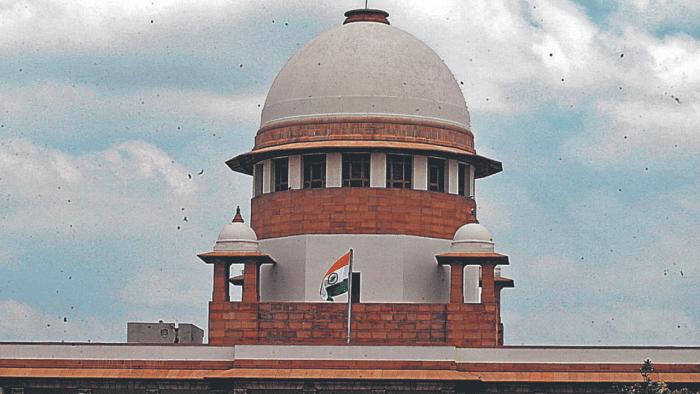
The Supreme Court of India.
Credit: Getty Photo
The Supreme Court on Monday refused to stay the Patna High Court's August 1 order giving the go-ahead for a caste survey in Bihar, and deferred the hearing on petitions challenging it to August 14.
As soon as a bench of Justices Sanjiv Khanna and SVN Bhatti took up the plea filed by NGO 'Ek Soch Ek Paryas' against the high court verdict, senior advocate CS Vaidyanathan, appearing for the appellant sought adjournment of the matter, saying other petitions filed on the same issue are not listed for hearing.
He requested the bench to take up the matter on August 11 or August 14. Senior advocate Mukul Rohatgi, also appearing for the appellant, requested the bench to take up the matter on August 14, to which it agreed.
Another counsel appearing for one of the appellants urged the court to order status quo ante (as things previous stood before the high court order).
'What status quo? We have not even issued notice in the matter. We have not even heard you on the issue. You are actually jumping the gun. There is no question of status quo in the matter at present,' Justice Khanna said.
The bench noted even the high court has said in its judgement that 80 per cent of the work related to the survey has been completed.
Besides the plea filed by NGO 'Ek Soch Ek Paryas' another petition has been filed by Nalanda resident Akhilesh Kumar, who has contended that the notification issued by the state government for the exercise is against the constitutional mandate.
Kumar's petition says in terms of the constitutional mandate, only the Union government is empowered to conduct a census.
'In the present case, the State of Bihar has sought to usurp the powers of the Union of India by merely publishing a notification in the official gazette. It is submitted that the Notification dated June 6, 2022 is against the Constitutional mandate of distribution of powers between the State and the Union legislature as enshrined under Article 246 of the Constitution read with Schedule VIIth of the Constitution and ultra vires the Census Act, 1948 read with Census Rules, 1990 and is therefore void ab initio (since beginning),' Kumar has said in his plea, filed through advocate Barun Kumar Sinha.
The plea says the entire exercise of conducting a 'census' by the Bihar government is without authority and legislative competence, and reeks of malafide.
Chief Minister Nitish Kumar has often insisted that the state is not conducting a caste census but only collecting information related to people's economic status and their caste so specific steps could be taken by the government to serve them better.
The high court had said in its 101-page verdict, 'We find the action of the state to be perfectly valid, initiated with due competence with the legitimate aim of providing development with justice….'
A day after the high court held the caste survey as 'valid', the state government had swung into action and suspended all ongoing training programmes for teachers so they can be engaged for early completion of the exercise.
The first phase of the exercise was completed on January 21. Around 15,000 officials, including enumerators and observers, had been assigned various responsibilities for the door-to-door survey.
The state government will spend Rs 500 crore from its contingency fund for the exercise.